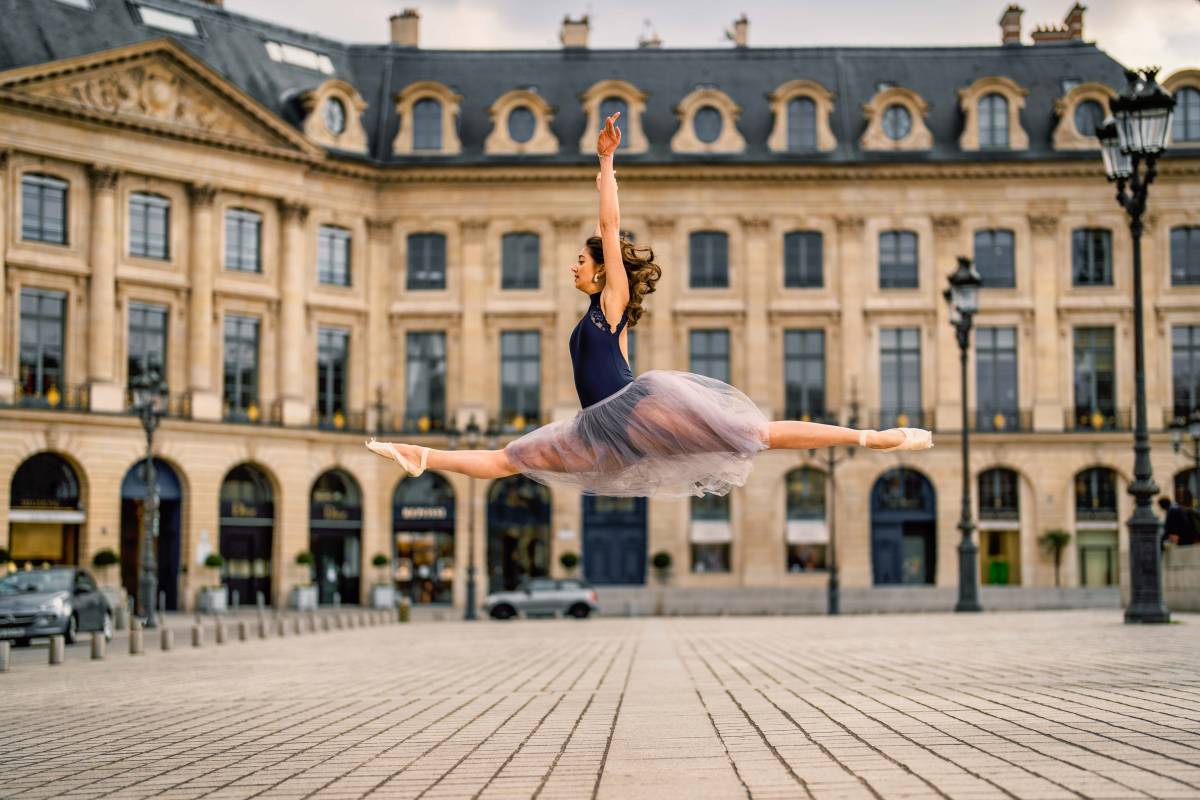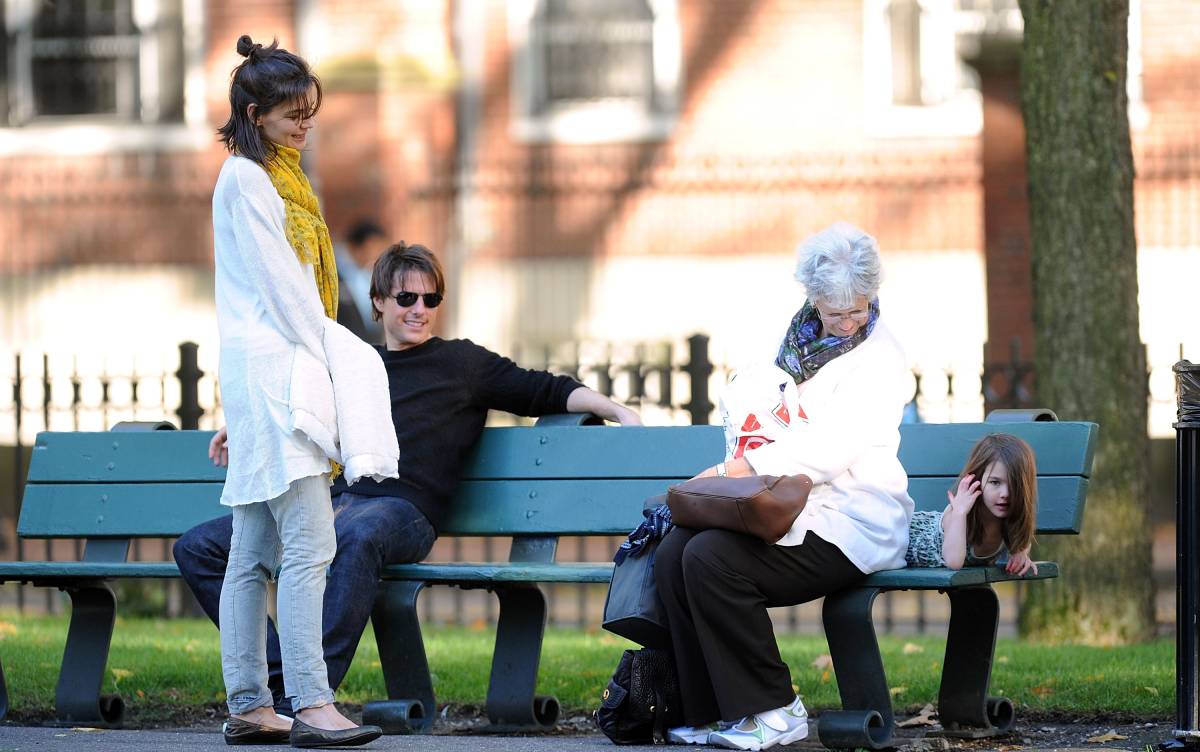
Dancer in Paris wears a Repetto tulle skirt and ballerina shoes. Photo credit: Getty
Laurence Levy is eagerly awaiting Chinese tourists’ return to European fashion hot spots.
The CEO of French ballet shoe company Repetto has made growth in China a top priority for 2023 and she sees travelers from the world’s second-largest economy as a golden opportunity to build brand awareness.
“By doing an excellent job in communicating our French luxury heritage to Chinese tourists coming to our flagship store, we can create a halo effect for our activities in China,” she said in an interview with Alizila.
China’s reopening in January was welcome news to many European fashion labels. Before the pandemic, Chinese shoppers made a third of luxury purchases globally and two-thirds of those purchases happened outside China, according to Bain, a consultancy.
“This potential is just huge and it’s just the beginning for the Chinese luxury market and for us at Repetto,” said Levy who joined the brand last year.
China Expansion
Repetto is taking a multi-pronged approach to expansion in China. It has managed physical stores in some of mainland China’s best-known high-end shopping areas since 2013, and Chinese tourists were among the top visitors to its Parisian boutiques before the pandemic.
Repetto upped the ante in February last year by launching an online store on Alibaba Group’s business-to-consumer digital marketplace Tmall, a move Levy calls a “game-changer”.
The brand is also making inroads into the booming athleisure market, where fashion melds with sportswear. Repetto is using its technical expertise in dancewear to make the more relaxed and comfortable style of clothes that women have preferred since the outbreak of the coronavirus pandemic.
“Ballet helps us know perfectly the body of a woman and the technical aspects of materials. Ballet gives me strength, a unique competitive advantage,” said Levy.
Levy also sees the trend as a way to reach new customers in China.
“Our customers come mostly from Tier 1 cities such as Beijing, Shanghai and Guangzhou. We have a lot of potential to reach more cities and age groups, but that’s where we are starting from,” she said.
Another powerful lift comes from the ballerina-inspired ‘balletcore’ aesthetic, grounded in the re-emergence of ballet flats as chic and comfortable urban footwear. “The ballerina is back on trend,” said Levy.
In the West, celebrity fans such as Lily-Rose Depp and Katie Holmes sparked the adoption of ballet flats, while in Asia, Korean pop star Jennie Kim led the way.

Rooted in Tradition
Celebrity endorsements and current tastes may be in its favor, but Repetto’s China strategy remains anchored in its unique and timeless connection to the world of dance.
“Dance is the inspiration for all our product lines,” said Jean-Marc Gaucher, Repetto’s chairman since 1999.
The company was founded in 1947 by Rose Repetto on her son’s advice, a ballet dancer and choreographer who saw the need for a more comfortable ballet shoe.
Repetto made its first shoe using a process called stitch-and-return, where the sole is stitched inside out before being returned to its final form, providing improved suppleness and comfort. No other shoemaker uses the process, largely because it is so difficult to master.
For Levy, a visit to Repetto’s original boutique in Rue de la Paix, Paris, brings the brand’s heritage to life for any potential customer.
“Just putting an iconic ballet shoe in front of Chinese consumers isn’t enough,” she said. “If you don’t explain what it stands for, how it is made and why it’s so unique, there are plenty of other products competing for their attention,” Levy added.
Repetto is increasingly communicating this message through e-commerce channels, which are driving sales of personal luxury goods in China. Online purchases of high-end products increased by 56% in 2021, compared to a 30% increase offline, according to consultancy Bain & Company.
Personalizaton
Levy believes the brand needs to innovate to remain relevant, and that means increasingly developing more ethical and climate-friendly materials.
“We need to be at the forefront of providing our clients alternatives if they want to consume more responsibly,” said Levy.
Digitally savvy and younger consumers also demand heightened levels of personalization in products and services. In China, shoppers avidly research brands to determine which ones align with their lifestyles and personalities.
“Chinese shoppers aren’t just looking to buy products. They’re expecting to engage in an experience with the brand,” she added.
L’Atelier Repetto, named after the French word for an artist’s studio or workshop, provides a personalized shopping experience at 11 boutiques worldwide. Customers at the atelier design their customized pair of Repetto flats from an unlimited combination of materials, shapes, heel heights and colors. They can even inscribe messages on the soles to commemorate special occasions like weddings.
“I want to make this available digitally to every consumer in the world. I believe this is exactly what our consumers, and particularly those in China, expect from luxury products,” said Levy.
Indeed, for younger consumers across Asia, customization is no longer merely a nice-to-have option but is increasingly becoming an expectation, according to a 2020 McKinsey survey.
As Chinese tourists reappear on European streets, Levy looks forward to welcoming more of these potential shoppers to Repetto’s stores.
“Our mission will stay the same: to promote French luxury and develop products around dance, along with exclusive products, experiences, and services,” she said. “This is really what the brand stands for.”
Find more brands expanding in China here




